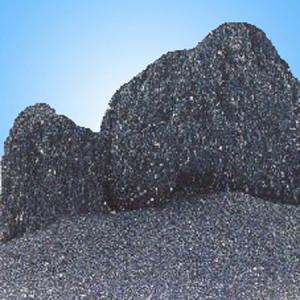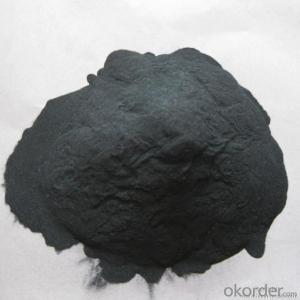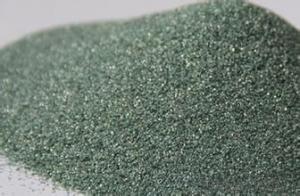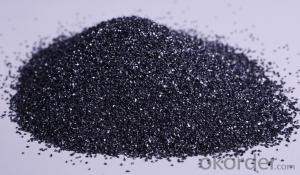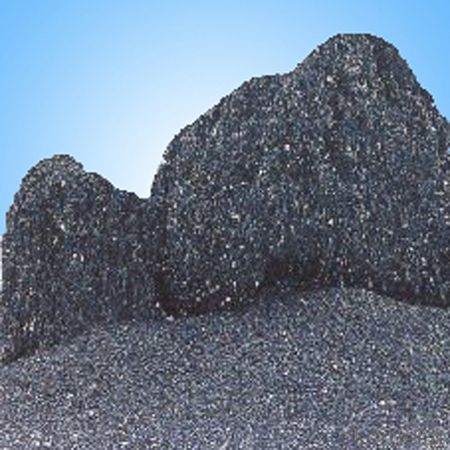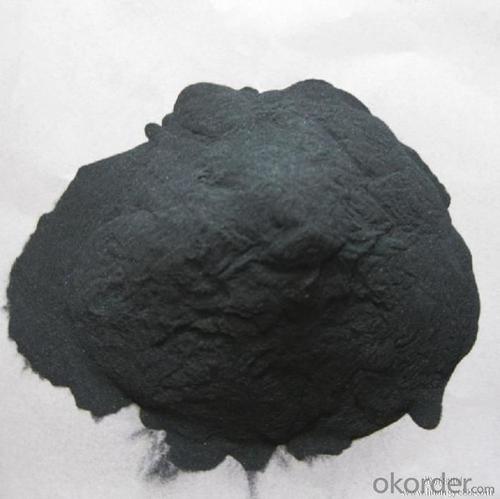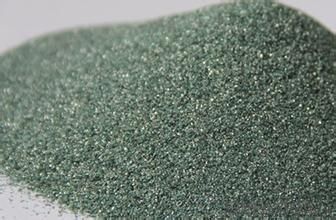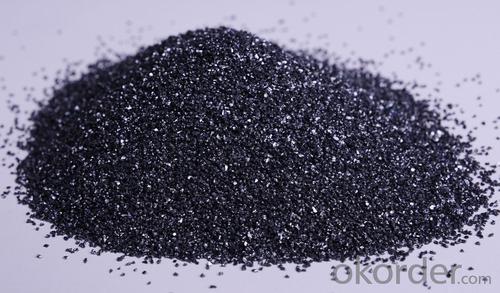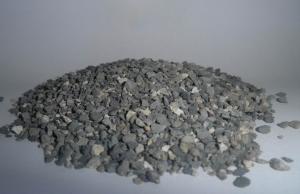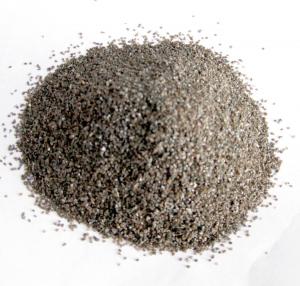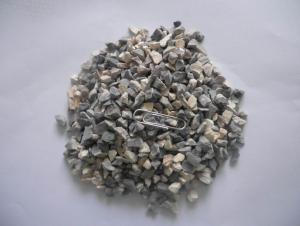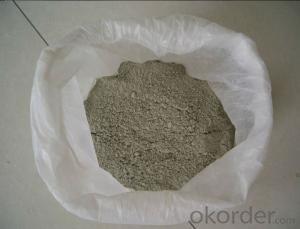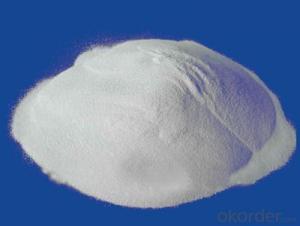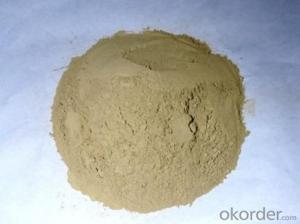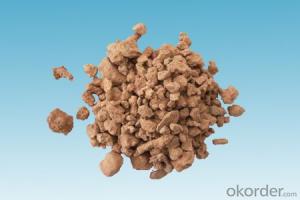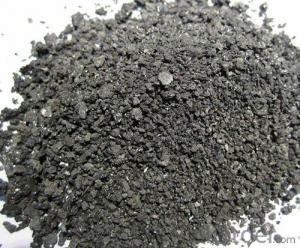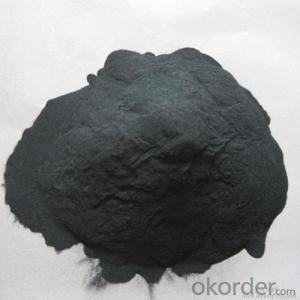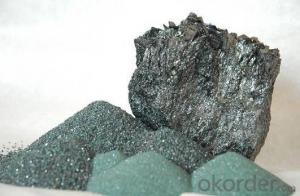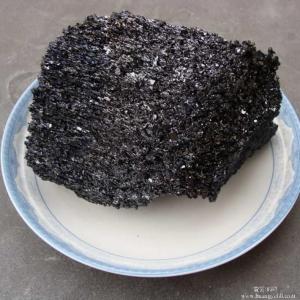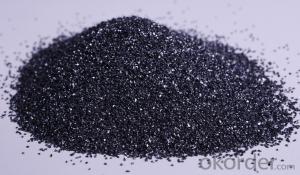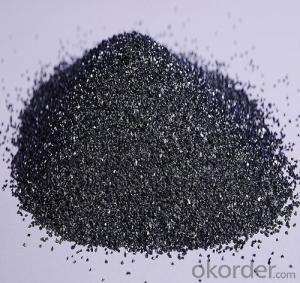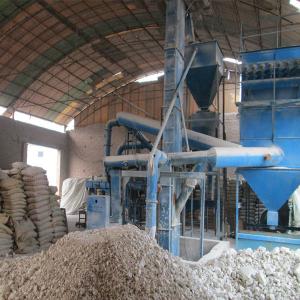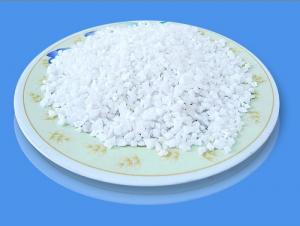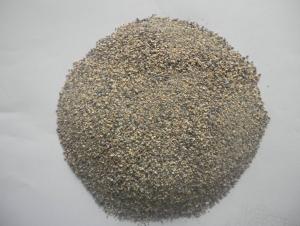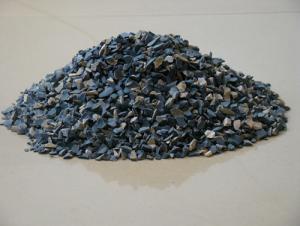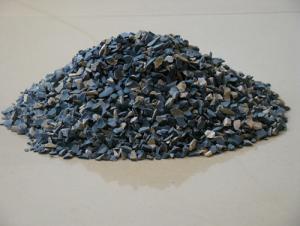Raw Materials for Refractory:Silicon Carbide (Carborundum) / SiC / Black Silicon Carbide / Green Carbide Silica
- Loading Port:
- Tianjin
- Payment Terms:
- TT or LC
- Min Order Qty:
- 25 m.t.
- Supply Capability:
- 3000 m.t./month
OKorder Service Pledge
OKorder Financial Service
You Might Also Like
Silicon Carbide (Carborundum ) / SiC / Black Silicon Carbide / Green Carbide Silica
Product name | Silicon Carbide (Carborundum ) / SiC / Black Silicon Carbide / Green Carbide Silica |
Model No | BA-20# |
Brand name | BA,CHINA |
Description | · Black silicon carbide is produced in an electric-resistance type furnace through fusing quarts sand and petroleum coke and high quality silica with high temperature. · Its hardness is between fused alumina and diamond's. · higher mechanical intensity than fused alumina's. · It is brittle and sharp and has electrical and heat conductivity in some degree. · Black silicon carbide, metallic, sic≥95%, stronger than green silicon carbide but softer than green silicon carbide, is mainly used for grinding of cast iron and non-metallic materials. |
Advantage | 1. raw materials are of high quality: pure silicon carbide, guaranteeing the products’ good quality. 2. sharp knife-edge, having cutting function. 3. Centralized and uniform particle size distribution 4. electrical conductivity 5. heat conductivity 6. chemical stability 7. high thermal conductivity, 8. low expansion coefficient 9. good abrasion-resistance |
Parameter | · The shape: polygon · Color: black · Proportion:3:2 · Bulk density:1.45-1.56 g/m³ · Mircohardness:2840-3320g/mm2 · Mosh hardness: 9.15 · Package: 25\kg · SiO≥92.5% · Free C≤0.3% · Fe2O3≤1.2% |
Usage | · Black silicon carbide, sic≥98.5%,its toughness is better than green silicon carbide, mostly for processing low tensile strength of the materials, such as glass, ceramics, stone, refractory materials, cast iron and non-ferrous metals. |
Shipping way | By sea, by air, by express |
Delivery time | Within 7 days from the receipt of payment |
Loading seaport | Shenzhen |
Package | 25kg/bag with woven bag, 40bags per pallet, or according customers' request |
Price term | FOB Shenzhen, CFR,, CIF, FCA, EXW ect |
Payment term | 100% T/T in advance(negotiation)
|
Product Pictures:
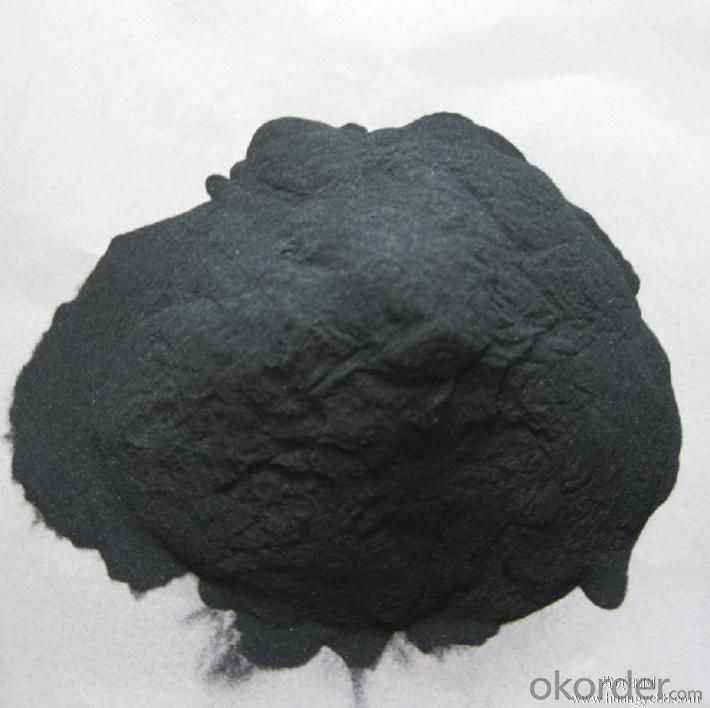
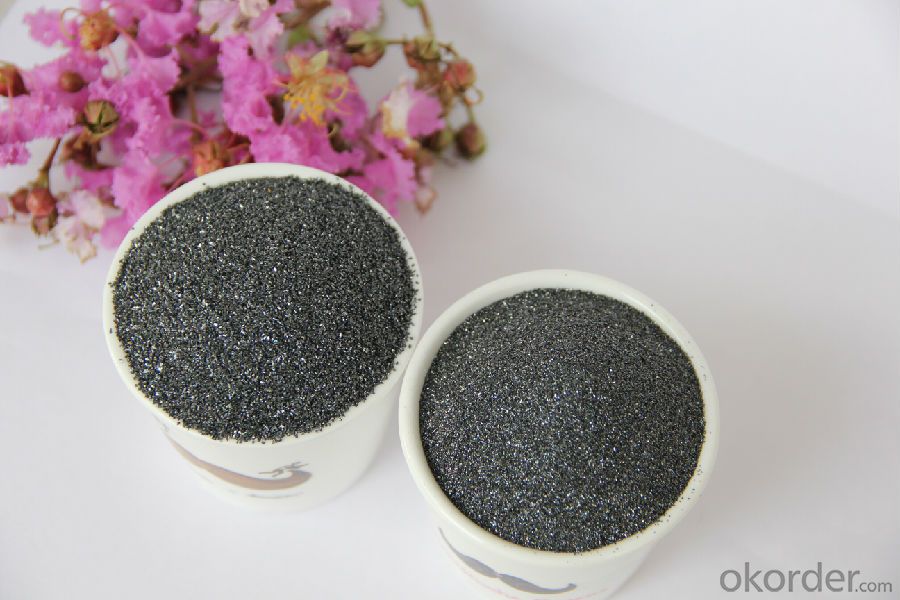
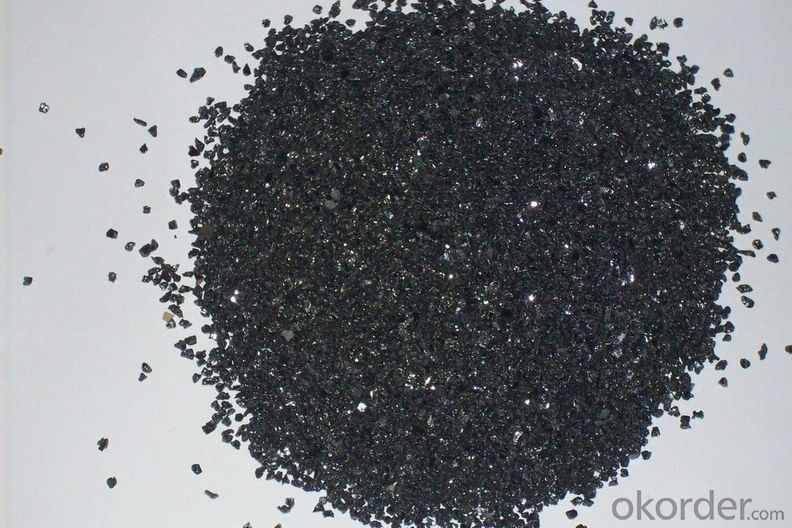
If you’ve Silicon Carbide enquiry, please don’t hesitate to let us know. ^_^
- Q: What is the importance of silicon powder in refractory processing?
- it can certainly improve the fire resistance
- Q: How to understand qualitative and qualitative refractory materials?
- Such as amorphous refractory castable, referred to as bulk loading, cast material, ramming material, refractory clay etc., utensils and other special products. Amorphous refractory material products, refractory heat insulating bricks and experimental and industrial crucible, spraying materials, such as burning bricks, electric melting brick, turn it into required shape and process heat treatment in where it is used.
- Q: Concrete composition and function of magnesia bond used in refractory
- Mainly high purity magnesia powder and silica fume, in accordance with the 4:1 ratio of the mixture, that is, we often use in the castable MgO-SiO2-H2O binding system! Compared with cement, the content of CaO is lower, the high temperature strength of the product is increased, and the slag corrosion resistance of the product is increased!
- Q: What are the features of construction class A fire resistant door ?
- Residential building: If the building height exceeds 100 meters, the combustion performance of thermal insulation material should be A level. Other civil building: Class A fireproofing material MCM should be set in buildings whose height is above 50 meters. National A level fireproof flexible?material is made up of soil, rock flour, sand, cement and other inorganic powder and modifying agent. Product density is 2327kg / m3. Upon examination, the combustion performance of the product meets A level requirements, and the additional classification meets s2, d0, t0 requirements. According to GB 8624-2006 sepcification, combustion performance of the product should reach A2-s2, d0, t0 level. Light, thin: 2-4mm thick / piece, saving space and cement, convenient to transport. : State Class A fireproof flexible?material. Freezing-thaw resistance: up to 100 freezing-thaw experiments (close to 100 years), the surface has no powder, no crack and no peeling. Aging and acid resistance: anti-aging property can reach more than 3500h, that is, it will not degenerate for 50 years. Recyclable: new energy, renewable , no "three wastes" emission
- Q: What kind of refractory bricks material is best?
- 1, high alumina brick: The content of Al2O3 is more than 75. The refractoriness is higher than the clay brick. It has good resistance to acid, alkali and erosion and is suitable for cement kiln calcining zone and other places. It has long operation life, but the price is high. 2. dolomite?brick: Formation of coating has good performance, good corrosion resistance, but f-CaO is contained in bricks. It is hydratable and difficult to transport and keep, so it is less used in the production. 3. magnesia-chrome bricks: It has good formation of coating and is used for burning zone. The disadvantage is poor thermal shock resistant performance. Besides, positive Hexavalent Cr is highly toxic. Countries that produce and use magnesia-chrome bricks gradually decrease on the international. Now production units using this brick should find alternatives as soon as possible. 4. spinel brick: It is often used in transitional zone and has good seismic performance, good reduction resistance, but refractoriness is a little bit poor. 5. anti-stripping brick: This brick contains a small amount of ZrO. Martensite phase transformation happens to form thin crack during temperature-rise period. It has strong alkali?resistance, anti-stripping performance and good slag resistance. 6. phosphate brick: It has low refractoriness, but it has strong strength and good shock resistance. It is often used in grate?cooler, hot kiln hood, etc. 7. carborundum brick: It has high temperature resistance(1800 degree, softening temperature under a fixed load is 1620-1640), small coefficient of thermal expansion, high cold-resistance heat-resistance, abrasion resistance. It is suitable for cooling zone and kilneye. 8. silmo brick: It has good thermal shock resistance, high strength, good abrasion resistance, and is suitable for transitional belt.
- Q: Does anyone know what is the use of waste refractory materials?
- 1.Waste refractory bricks can be reused to make the refractory bricks after being crushed by crusher, but the price is not very high. The purchasing price of refractory plant is ?60/ton. Because the refractory material has been calcinated for two times, it becomes easier to make bricks expansion coefficient with waste refractory bricks, but too much is inadvisable. If too much, the refractory materials would have a bad combination, which will give rise to loose bricks and incomplete corners. Nowadays, ordinary refractory plants would purchase waste refractory bricks to produce bricks, but better plants wouldn’t do this.
- Q: Do you know where I can buy refractories?
- Refractories are sold in following companies : Address of Huadu Refractories Co., Ltd. : NO.11 Huanjin Road, Fuyang, Hangzhou Address of Zhenxing Special Fire-Proof Material Co., Ltd. : No. 54 Pingjing Road, Yuhang District, Hangzhou Address of Zhongnai Refractories Co., Ltd.: No. 345 Fuyang, Hangzhou, Zhejiang Province
- Q: What is refractory?
- Refractory is an inorganic nonmetallic material with minimum refractoriness of 1580 ℃. Now, refractory is not defined merely by judging that whether its refractoriness is at above 1580 ℃. Currently, refractory, an inorganic nonmetallic material, are widely used in metallurgy, ceramics, power and other industrial fields.
- Q: Can the teflon material resist fire?
- Teflon material does not burn, but the heat resistance temperature of it is about 300℃.
Send your message to us
Raw Materials for Refractory:Silicon Carbide (Carborundum) / SiC / Black Silicon Carbide / Green Carbide Silica
- Loading Port:
- Tianjin
- Payment Terms:
- TT or LC
- Min Order Qty:
- 25 m.t.
- Supply Capability:
- 3000 m.t./month
OKorder Service Pledge
OKorder Financial Service
Similar products
Hot products
Hot Searches
Related keywords
